May 2020 2nd Edition
May 2020 2nd Edition Estelle Greeff
Translations
293 athletes receive COVID-19 financial assistance
293 athletes receive COVID-19 financial assistance angenithaThe Department of Sport, Arts and Culture’s Coronavirus (COVID-19) Relief Fund has come to the rescue of 293 financially distressed athletes, Minister Nathi Mthethwa announced recently.
This comes after a R150 million relief fund was announced to assist artists, athletes, technical personnel and the core ecosystem of the sector.
The sport adjudication process began on 9 April. The deadline for application to the relief fund was 6 April. Subsequent to this, independent adjudication committees were appointed to oversee the process.
After President Cyril Ramaphosa announced a national state of disaster on 15 March, the department held a consultative meeting with the sport and creative sector.
Addressing reporters Mthethwa said: “The other part of this fund was open to proposals for livestreaming the work of creatives and athletes, particularly, intergenerational cooperation between younger artists and the legends.”
The 293 successful athletes are from;
- Boxing SA (47),
- Athletics (86),
- Canoeing (2),
- Equestrian (21),
- Fencing (7),
- Golf (70),
- Gymnastics (3),
- Netball (8),
- Football (17),
- SA National Boxing Organisation (4),
- Surfing (5),
- Tennis (2),
- Triathlon (5).
The Minister said the processing of the funds was largely through the relevant federations, but payment was made directly by government.
Each athlete was entitled to a claim amount of R20 000.
“On 23 April, more than 300 applications were received and the disbursement of relief funds to successful applicants began. On 24 April, 93 successful applicants received their relief funds.”
After the re-submission of applications was referred back to the federations.
A total of 473 applications were received from 25 sporting federations.
“We made a point at the time that the sector is going to be the hardest hit by the pandemic since the necessary measures to curb the spread of the virus were detrimental to the sector,” said Minister Mthethwa.
Mthethwa said the department was concerned by the large number of declined applications.
“We are concerned that a number of people did not succeed. These applications come from historically disadvantaged backgrounds. We need to do due diligence to adhere to criteria agreed upon. We are thinking that we need to do something to ensure that people who need this assistance get it,” said the Minister.
Reasons for declined funding applications included applications missing documents and no proof of event cancellation.
SAnews.gov.za
COVID-19 claims beloved community member
COVID-19 claims beloved community member vuyelwanPeople can have the coronavirus disease and not feel sick, which means that unless they practise social distancing, they could spread the virus to others in their community. This was the case recently in the Eastern Cape.
The death of a King William’s Town resident who succumbed to the coronavirus (COVID-19) has impacted the wider community.
Nosango Mfaka (61) died at Grey Hospital a day after testing positive for COVID-19.
Her nephew and family spokesperson, Eugene Mfaka, says that his aunt was a beloved member of her community. She was quick to help those in need and was active in her church. Eugene says that the news of Nosango’s illness shocked the community to the core.
After the news that she was ill broke, there was a stream of community members coming to check on Nosango at her Mamatsha village home.
“In her church, she participated in whatever events were happening. When the church was organising something, you would never see her sitting idle, such was her character and passion for all things that concerned her community,” Eugene says of his late aunt.
Nosango contracted the virus when she visited a local doctor for an unrelated health matter. Although the doctor was showing no signs of being infected, days later he fell ill and tested positive for the virus.
According to Eugene, his aunt started feeling weak several days after the news of her doctor’s infection became known. He says she was extremely tired and complained of body pain. Eventually, Nosango was unable to eat and was taken to Grey Hospital where an urgent test was done and it was confirmed that she had the virus.“My aunt went to the hospital on Monday [20 April] and when they saw her symptoms, a rapid test was conducted. On confirmation that she had COVID-19, they admitted her to the intensive care unit. She passed away the following day.”
Final goodbye
In order to curb the spread of the virus, the Mfakas had to forego the traditions practised when a person dies. Eugene says his aunt’s burial was attended by fewer than 20 people, including staff from the funeral parlour.
The funeral took less than an hour and Nosango’s corpse was not taken to her home, as is the norm. A traditional funeral service – at which friends, community and church members say their goodbyes – did not happen.
“Her body went straight to the graveyard where only immediate family members and funeral parlour staff members were present,” he says..
The virus acted quickly in taking Nosango’s life because she had underlying illnesses that made her more vulnerable to the effects of COVID-19, according to Eugene.
Curbing the spread of COVID-19
He adds that before she passed, Nosango inadvertently infected her husband Mzimkhulu (80) and their two grandchildren, aged 13 and five, who lived in the same house. The grandchildren have been put in isolation at a government facility. In addition to this, Eugene says, there is a real possibility that the community members who had gone to visit her may have also been infected.
He says many of the village’s residents do not follow the regulations that government has put in place to curb the virus, explaining that people need to realise that COVID-19 is real and it kills.
“The sad thing is that some people only exhibit symptoms at a very late stage. So we never know that someone has the virus till they are tested for it. Some of the people who have contracted COVID-19 might not even have symptoms because their immune system is that strong, but that does not mean it’s not there.
“People need to practise things such as social distancing, wearing masks and washing their hands to curb the spread of the virus. Unfortunately, they only begin to take things seriously when they are affected. If people do not start listening, the number of deaths will continue to climb,” says Eugene.
COVID-19 lockdown levels explained
COVID-19 lockdown levels explained JoySouth Africans can help the nation reopen for business and leisure by adhering to the prevailing restrictions.
South Africa has officially moved to Level Four lockdown restrictions, put in place to slow the spread COVID-19 the coronavirus disease.
COVID-19 infections in South Africa continue to rise and the virus poses a significant threat to our country. Government has thus taken a careful approach, consisting of five lockdown levels, to fully reopen the economy.
Level Four explained
South Africa moved from Level Five to Level Four on 1 May.
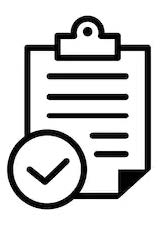 Government’s regulations for Level Four include:
Government’s regulations for Level Four include:
- In addition to essential services, some other businesses may open, including those that sell baby clothes, bedding, winter clothing and stationery. Hardware suppliers and vehicle maintenance businesses can open, and factories that support these businesses can start manufacturing.
- Restaurants can sell food, but deliveries only.
- A curfew has been put in place. You may not leave your home between 8pm and 5am, unless you have an essential worker permit or need urgent medical attention.
- You may leave your home to exercise, but only between 6am and 9am. However, you must stay within 5km of your home and cannot exercise in groups.
- Fabric face masks are now mandatory. You have to wear one when leaving your home.
- Tobacco products and alcohol are still not allowed to be sold.
- Domestic workers and childminders who live at private households can return to work.
- Businesses that open must have strict social distancing and hygiene measures in place.
- You may only travel between provinces for funerals or to return to work or home.
- You may still not visit family or friends.
- You can use public transport, such as trains and buses, under strict conditions.
The relaxed lockdown will allow around 1.5 million workers to return to work, as shops and industries such as mining and agriculture start expanding their operations.
Cooperative Governance and Traditional Affairs Minister Nkosazana Dlamini-Zuma reminded South Africans that Level Four does not mean that the lockdown is over. As infections around the country continue to increase, it is important for all citizens to continue to follow regulations so that the healthcare system is not overwhelmed, she says.
“Let me say again, briefly, that Level Four does not mean the lockdown has ended. Stay in your home. Wear a mask. Wash your hands. Keep your distance from other people,” the Minister says.
Level Three
 Government will base a decision to move down to Level Three on various factors, such as the rate of new COVID-19 infections. When the virus spread is less and the healthcare system can cope with the spread, the lockdown will move to Level Three.
Government will base a decision to move down to Level Three on various factors, such as the rate of new COVID-19 infections. When the virus spread is less and the healthcare system can cope with the spread, the lockdown will move to Level Three.
The regulations under Level Three include:
- All workers will be allowed to return to work at factories. All workplaces must have COVID-19 prevention measures in place.
- Alcohol sales will be permitted from Monday to Wednesday, between 8am and 12pm. You will only be allowed to buy alcohol to drink at home. Bars and shebeens will remain closed.
- Restaurants will only be able to deliver orders.
- More businesses will be allowed to open, allowing more workers to get back to work. These include employees in sectors such as vehicle manufacturing, construction, clothing, real estate and gardening.
- Limited travel, including travel between provinces, will be allowed in some circumstances.
- Laundry and dry-cleaning services will be permitted.
Level Two
A move down to Level Two will see more regulations eased, as the virus spreads at a low level and our healthcare system is fully prepared.
Level Two regulations include:
- Manufacturing to be scaled up to 100 percent employment.
- All retail will be permitted.
- Business travel will be allowed.
- Accommodation will be opened for business travellers.
- Restaurants can open for takeaways and delivery.
- Travel between provinces will be allowed.
Level One
 Level One is the scenario that government is aiming for. This will only happen when there is minimal spread of the virus and if South Africans adhere to regulations in the higher lockdown levels.
Level One is the scenario that government is aiming for. This will only happen when there is minimal spread of the virus and if South Africans adhere to regulations in the higher lockdown levels.
Under Level One, most activities and businesses will be permitted, but COVID-19 prevention guidelines, such as social distancing and proper hygiene, will still have to be followed.
It is important for all South Africans to work together to prevent the spread of COVID-19 so that we can all return to work and see our country returning to normal.
COVID-19 stimulus package in numbers
COVID-19 stimulus package in numbers vuyelwanFinance Minister Tito Mboweni recently elaborated on the R500 billion stimulus package announced by President Cyril Ramaphosa in April, to counteract the effects of the coronavirus (COVID-19) pandemic on individuals, businesses and the economy.
Vuk’uzenzele takes a look at the amounts allocated:
R800 billion: The total, economy-wide cost of the COVID-19 measures announced by government in recent weeks.
R130 billion: The amount reprioritised from the current budget to be used to fight COVID-19.
R20 billion: Allocated to protective equipment for health workers, community screening, an increase in testing capacity, additional beds in field hospitals, ventilators, medicine and staffing.
R1 billion: The amount spend by the Solidarity Fund on personal protective equipment so far.
R20 billion: Allocated to municipalities for the provision of emergency water supply, increased sanitisation of public transport and facilities, and providing food and shelter for the homeless.
R50 billion: Has been allocated as a temporary six-month coronavirus grant. It includes child support grant beneficiaries, other grant beneficiaries and a special Covid-19 Social Relief of Distress grant for unemployed individuals who do not receive any other form of social grant or Unemployment Insurance Fund payment.
R100 billion: An additional amount allocated for the protection of jobs and to create jobs.
R40 billion: The amount allocated for income support payments for workers whose employers cannot pay their wages.
R2 billion: An additional R2 billion was allocated to assist small, medium and micro-enterprises, spaza shop owners and informal businesses.
R200 billion: A loan guarantee scheme of R200 billion has been put in place, in partnership with major banks, National Treasury and the South African Reserve Bank.
10 percent: The amount that taxpayers who donate money to the Solidarity Fund will be able to claim as a deduction from their taxable income.
Coronavirus update
Coronavirus update vuyelwan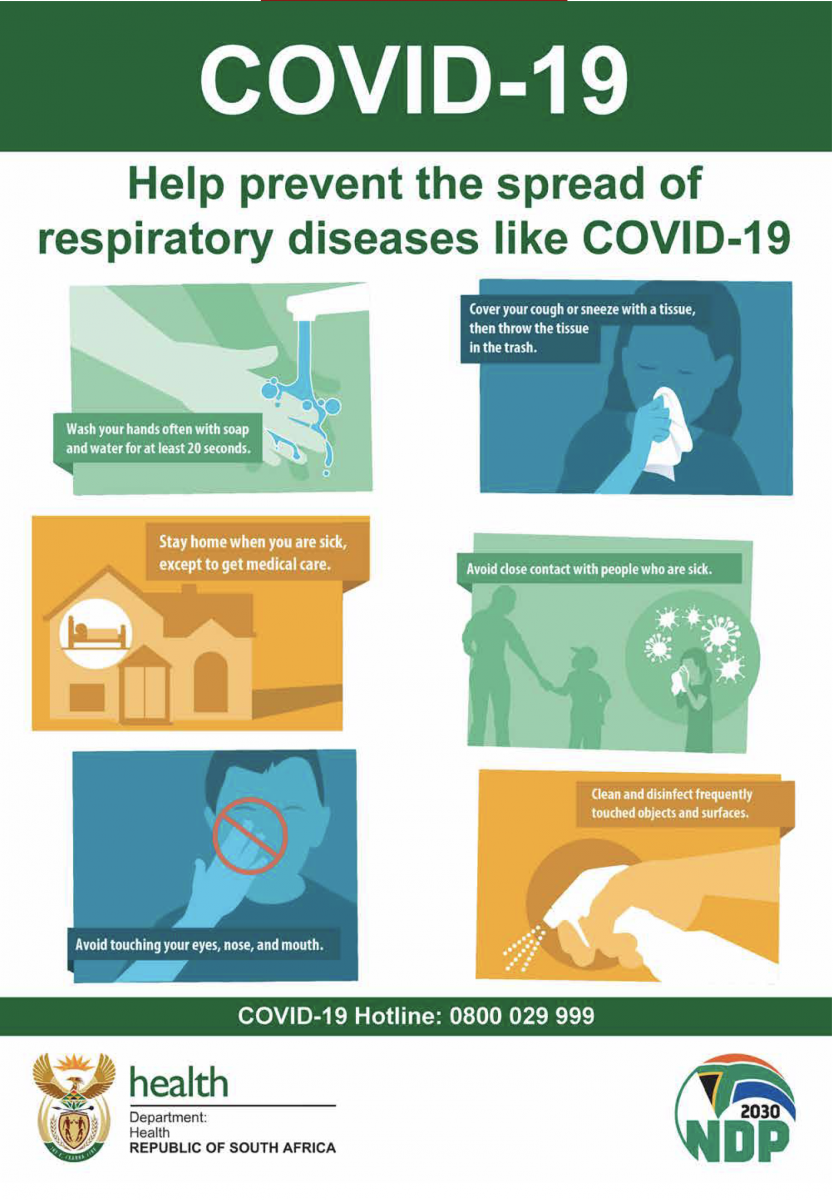
Cuba extends helping hand
Cuba extends helping hand JoyCuban doctors are set to bolster South Africa’s COVID-19 fight.
South Africa is intensifying its efforts to curb the coronavirus disease (COVID-19) with assistance from 217 Cuban doctors.
The doctors, who arrived in South Africa recently, bring expertise in the fields of epidemiology, biostatistics and public health.
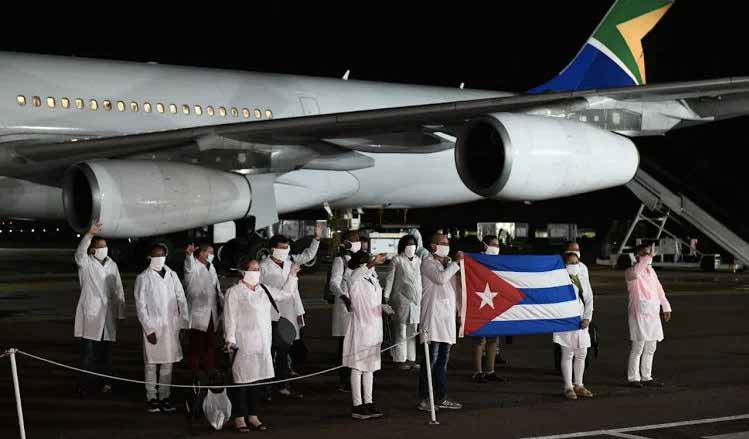 The team also comprises of family physicians, who will guide door-to-door testing and assist local health workers in health promotion and disease surveillance at community level; and healthcare technology engineers, to assist in maintaining the inventory, deployment and repair of aged medical equipment. The Cuban experts will provide technical assistance to local experts.
The team also comprises of family physicians, who will guide door-to-door testing and assist local health workers in health promotion and disease surveillance at community level; and healthcare technology engineers, to assist in maintaining the inventory, deployment and repair of aged medical equipment. The Cuban experts will provide technical assistance to local experts.
Health Minister Dr Zweli Mkhize says the group will augment the country’s abilities in areas where the Cuban doctors have strengths we need, such as community medicine.
“This brigade does not threaten job security for our own healthcare workers, but has rather come to strengthen our human resources capacity. The Cuban doctors have expertise in family medicine, case management, regulation, epidemiology, health technology and biostatistics,” says Minister Mkhize.
The family physicians have been allocated to different provinces, based on the severity of the virus in that province as follows;
- The Western Cape (WC) received 18 doctors
- Gauteng (GP) and KwaZulu-Natal (KZN) have been allocated 17 each;
- The Eastern Cape (EC) received 12 family physicians;
- The Free State (FS) and Mpumalanga (MP) have 10 each;
- Limpopo (LMP) and the North West (NW) have eight each;
- Northern Cape (NC) has seven family physicians.
The WC, GP and KZN were each allocated five health technology experts. The EC has four; the FS, MP, LMP and NW have three each; and the NC has two.
The number of biostatisticians allocated to each province are as follows;
- GP, four;
- WC and KZN, three each;
- EC and FS, two each;
- MP, LMP, NW and NC, one each.
The National Department of Health (NDOH) also has three biostatisticians allocated to it. The NDOH recieved one epidemiologist and so did the NC, NW, LMP and MP. The FS and EC have two each; while KZN, WC and GP have three each.
The help from Cuba is the latest in a long history of friendship between South Africa and the Central American nation. The Nelson Mandela-Fidel Castro medical training programme has seen over 732 South Africans trained as doctors in Cuba in the past 23 years.
Fake news puts lives at risk
Fake news puts lives at risk vuyelwanThese are historic times, with life as we know it in a state of flux. It is important that people keep abreast of all developments so that they can adhere to lockdown restrictions and keep themselves safe – but to do this, they need to know the difference between real and fake news.
Fake news is based on information that is not correct. It is often created by individuals who want to spread fear and panic, or by people who believe in theories that are not based on any scientific fact.
The Department of Health’s (DoH) SA Coronavirus website www.sacoronavirus.co.za describes three types of fake news:
- Disinformation: Information that is false and deliberately created to harm a person, social group, organisation or country.
- Misinformation: Information that is false but not created to cause harm or mislead readers.
- Mal-information: Deliberate publication of private information for personal or private interest, as well as the deliberate manipulation of genuine content.
Fake news can take the form of WhatsApp messages, social media videos or articles on fake news websites. In South Africa, we have seen a rise in the amount of fake news being spread about COVID-19. This has the potential to hamper government’s efforts to slow the spread of infection. 
Identify fake news
The DoH advises that when you receive information about COVID-19, you verify the source of the information.
If you are able to access the internet, then you should immediately research the information. You should quickly be able to find out whether it is true.
In general, you should not trust any information that comes from an ‘anonymous source’. Make sure that you find out if something is factual before sharing it or you could cause unnecessary panic and even get into trouble with the police.
You should not rely on social media and WhatsApp messages for reliable news and advice on COVID-19. Limit yourself to getting information from reliable sources, such as the World Health Organisation and the DoH. This information is based on scientific fact and intense research into COVID-19.
Government has set up a coronavirus hotline and a WhatsApp portal where you can ask any questions you may have about COVID-19 information. Call 0800 029 999 or send the word ‘Hi’ to 0600 123 456 on WhatsApp.
Government urgently addresses overcrowding
Government urgently addresses overcrowding angenithaThe National Department of Human Settlements has allocated R4.6 billion from the Human Settlements Development Grant and the Urban Settlements Development Grant in the current financial year in response to the coronavirus (COVID-19) pandemic.
Minister Lindiwe Sisulu says government has stressed that apart from washing hands frequently with water and soap, citizens need to practise social distancing.
“From the very beginning, my department realised that this was not practical for informal settlements. We therefore came up with re-blocking – initially called de-densification – as a solution,” she says.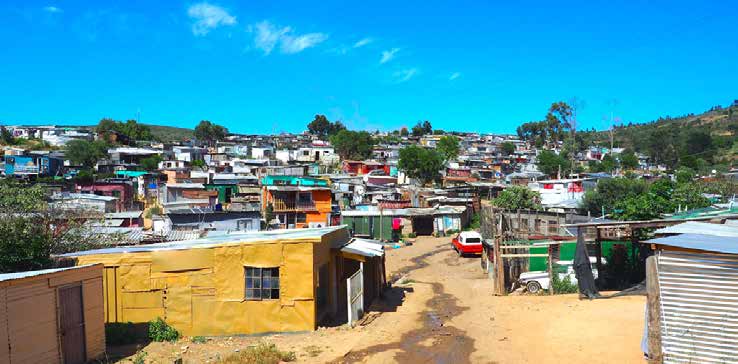
“We’ve joined up with civil society organisations to resettle residents from extremely dense informal settlements to 27 land parcels we identified and are currently preparing for resettlement.”
The department will be using temporary residential units (TRUs) to house many of the affected residents. These units are quick to assemble, have solid flooring and a corrugated iron roof.
Minister Sisulu recently gave an update on what the department is planning and already doing in the most affected provinces – the Eastern Cape, Gauteng, North West and the Western Cape.
Eastern Cape
In Duncan Village in Buffalo City, the department has appointed a contractor to fast-track the construction of 1 174 housing units as part of the broader Duncan Village Integrated Development Programme. Another 2 000 units will also be constructed at Ziphunzana Bypass and Gompo, where a contractor has already been appointed and is on site.
Minister Sisulu said some of the beneficiaries will be relocated to 2 500 completed units in Reeston and 2 800 units in Mdantsane. These are people who have already applied and been approved for government’s low-cost housing programme.
Gauteng
In Gauteng, the department will deliver TRUs to 72 households on Plot 323 in Wilgespruit, Roodepoort, in the City of Johannesburg.
“We managed to achieve this through our private sector partners who donated these units to the provincial and local government. These families have constantly been victims of multiple farm evictions over the past years,” she explained.
In Diepsloot, she said the department will be resettling 1 348 approved beneficiaries to completed units in Riverside, Johannesburg. This process commenced in May.
The department has also prepared 1 108 stands in Tanganani Extension 7. Another 1 100 units will also be constructed in Tanganani Extension 14.
In Zandspruit and Ivory Park, 1 402 and 1 200 units respectively are planned. Minister Sisulu said the Housing Development Agency will take further instructions from the City of Johannesburg on proposed designs.
In the Stjwetla informal settlement in Alexandra, 2 295 TRUs will be constructed. Community facilitation has already commenced.
Madala Hostel has been identified for de-densification, with 1 233 units to be erected by the Johannesburg Social Housing Company.
“A total of 1 062 multi- storey units will also be constructed in the area and the department is in the process of obtaining approval from the Gauteng Provincial Government to access provincial land,” the minister says.
She added that Helen Joseph Women’s Hostel will benefit from 144 units, and the identification of households earmarked for relocation to units will commence at the end of this month and relocation letters to all beneficiaries targeted for relocation will be issued.
At Phomolong in the City of Tshwane, households from the K54 route and 150 victims of the Mamelodi floods will be resettled on 792 stands and 1 000 TRUs will be constructed to decongest the Mamelodi Hostel.
The minister says residents from Brazzaville and six other nearby informal settlements in Pretoria West will also benefit from a planned 1 342 units.
Minister Sisulu met with Executive Mayor of the City of Johannesburg Geoff Makhubo and the MEC for Human Settlements, Cooperative Governance and Urban Planning, Lebohang Maile. She has asked them that prospective residents in Gauteng already on the waiting list be immediately resettled into an estimated 14 000 units that have been completed.
North West
In the North West, 350 housing units are scheduled to be constructed in the Boitekong informal settlement in Rustenburg.
Western Cape
Minister Sisulu said in DuNoon in the City of Cape Town, a contractor has been appointed to deliver 1 500 multi-storey TRUs.
“A total of 2 000 units will also be constructed in Kosovo, whilst the department, province and the City of Cape Town intend to build 3 000 units at Ithemba,” she explained.
Government’s response to COVID-19
Government’s response to COVID-19 vuyelwanFinance Minister Tito Mboweni recently briefed the nation on government’s coordinated economic and financial response to the coronavirus (COVID-19), confirming that National Treasury and the South African Reserve Bank worked together on a set of responses to the crisis.
There are five main components to government’s economic response, namely;
- an extraordinary health budget (R20 billion);
- relief of hunger and social distress;
- support for companies and workers;
- the phased re-opening of the economy;
- supportive monetary and financial market measures.
President Cyril Ramaphosa spoke in detail of these measures when he recently announced government’s R500 billion COVID-19 stimulus package.
Three-phase COVID-19 response
In the month ahead, government’s response will consist of three phases. Phase one, the current phase, aims to preserve the economy. 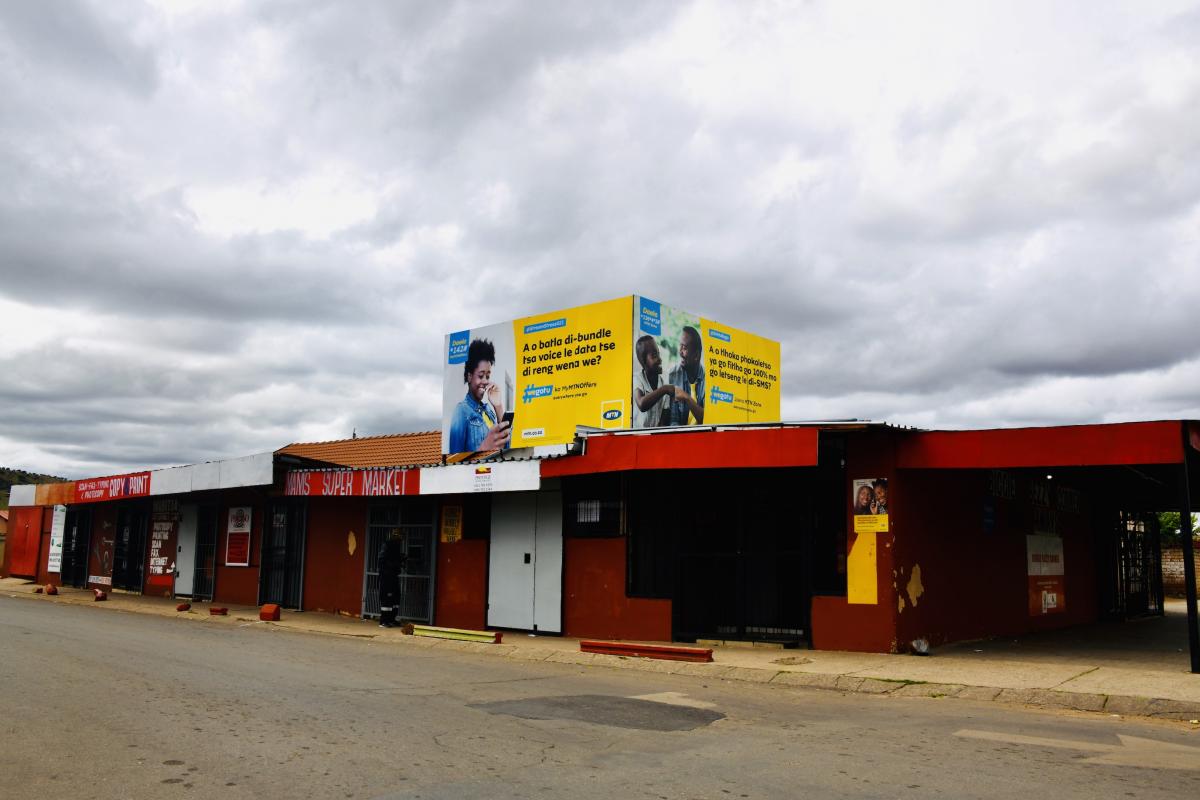
Phase two is a plan for recovery, while Phase Three will position the economy for structurally higher growth.
“As we come out of the coronavirus crisis, we must work quickly to implement our structural reforms to get the economy moving. Virus or no virus, the economy has been growing too slowly for too long,” the minister said.
Favouring unemployed South Africans
Minister Mboweni said that businesses hoping to open and thrive post the lockdown should consider amending their labour market policies to favour unemployed South Africans, including restaurants.
He explained that when he returned to South Africa from exile in 1990, eight out of 10 restaurant workers were South African. “The other two were probably Malawian or Zimbabwean. Today, almost 100 percent are non-South African. The new economy that we are getting into after the lifting of the lockdown must answer that question,” Minister Mboweni said.
“Any establishment wanting to reopen must have a new labour market policy which prioritises South Africans, but does not discriminate against [foreigners]. But, the proportion of South Africans working in a restaurant must be greater than that of non-South Africans. This is a new economy we are talking about,” he added.
Spaza shops must be registered
Speaking about COVID-19 relief for spaza shops, Minister Mboweni reiterated that every spaza shop must be registered, have a licence to operate, have a bank account and have a tax number.
“They must also open their business for inspection by the Department of Health, so that our people are not being fed expired goods,” said Minister Mboweni.
The Department of Small Business Development has finalised an agreement with Nedbank to support spaza shops and general dealers, on the back of the Small Enterprise Finance Agency’s Khula Credit Guarantee Scheme. Nedbank has since put additional service points in place at Boxer stores countrywide.
The support scheme also benefits general dealers and traditional grocery stores, that have applicable licences and are 100 percent owned by South Africans, in townships and villages. Local hardware stores are also beneficiaries under this scheme.
Help on hand for young entrepreneurs
Help on hand for young entrepreneurs angenithaApplications for the Youth Micro Enterprise Relief Fund are open.
The National Youth Development Agency (NYDA) has reached out a helping hand to young entrepreneurs who have been financially affected by the coronavirus (COVID-19).
The NYDA’s Youth Micro Enterprise Relief Fund will assist qualifying youth-owned businesses with a once-off amount, capped at R10 000 per business. The money granted is not a loan and businesses that benefit don’t have to pay it back.
According to NYDA Chairperson Sifiso Mtsweni, the fund will assist youth-owned small, medium and micro enterprises, but will have a special emphasis on micro enterprises.
“The outbreak of COVID-19 has impacted a lot of enterprises, globally and locally. Youth-owned enterprises have not been spared from this. It is therefore appropriate that the NYDA should also provide a response for youth-owned enterprises,” says Mtsweni.
Businesses hoping to benefit from the fund must:
- have been operating for six months before the initial lockdown;
- have proof of operations in the form of management accounts, such as invoices and orders;
- provide financial statements, for three months before the lockdown, and statements during the lockdown;
- show proof of banking, not older than six months;
- provide registration documents with the Companies and Intellectual Property Commission, except for informal businesses;
- demonstrate how the business has been impacted by COVID-19;
- be owned by youth, between the ages of 18 and 35, who are South African citizens residing in the country; and
- be operating in South Africa.
Mtsweni says the fund, which will assist youth-owned enterprises that might not qualify for other funds, will only cover operational costs.
“This fund will respond to challenges facing youth-owned businesses, such as the inability to pay employees, a lack of income and waiting periods for other funding mechanisms.”
Mtsweni commended government’s efforts in the fight against COVID-19 and encouraged all youth development stakeholders to cooperate to mitigate against the pandemic’s negative economic impact.
The application process is open until 30 May 2020. For more information about the NYDA’s Youth Micro Enterprise Relief Fund visit www.nyda.gov.za.
Higher education students to learn remotely
Higher education students to learn remotely JoyWith colleges and universities not re-opening for now, institutions have to use all available tools to reach their students until contact learning can resume.
The Department of Higher Education and Training (DHET) has decided not to resume with campus-based academic activity in the post-school education and training (PSET) sector during the Level Four lockdown period.
This is according to Minister of Higher Education, Science and Innovation Blade Nzimande. He says this includes all universities and technical and vocational education and training (TVET) colleges, both public and private, but excludes some medical students.
 Minister Nzimande says it is not possible to determine when students will physically return to their campuses.
Minister Nzimande says it is not possible to determine when students will physically return to their campuses.
“Until we reach that point, every effort is now being made to put in place multiple and flexible methods of teaching and learning.”
However, there will be a controlled return of final year clinical training (medical) students who will directly assist with the Department of Health’s health management campaign.
The DHET will direct and manage the way institutions carry out their academic mandates at all times within this strategic and policy framework.
He says this period requires that effective multi-modal remote learning systems comprising digital, analogue and physical delivery of learning materials be developed. “This we will do making sure that no student or institution is left behind,” he says.
The department is close to securing a universal access deal with the major mobile network operators around data and connectivity to support remote learning and the procurement and distribution of devices (laptops) for students is also being finalised.
Minister Nzimande appeals to all students to ensure that they urgently register their correct contact numbers with their institutions so that they are enabled to continue their studies remotely.
For universities, he says the completion of the 2020 academic year and the start of 2021 academic year will be aligned with the completion cycle of the National Senior Certificate.
The minister says each university will have to put plans in place to ensure its specific programmes, resources and capacity are adequate to offer various forms of remote and flexible learning from the beginning of June 2020 until a full return to contact teaching and learning is feasible.
“Our TVET colleges will have to reorganise the academic year to enable students to complete trimesters 1 and 2 for Engineering Studies, both semesters for Business Studies, and the full year NC(V) programmes. Trimester 3, which should have taken place from August to November 2020, will be deferred to a date to be determined after consultation with stakeholders,” he says.
Jobless to receive distress funding
Jobless to receive distress funding vuyelwanCOVID-19 relief funds have been made available for unemployed people and payments should be made from mid-May.
South African citizens, permanent residents and refugees who have been affected by the coronavirus (COVID-19) will benefit from the Special COVID-19 Social Relief of Distress Grant.
The grant was initially announced by President Cyril Ramaphosa in April when he talked about the socio-economic measures that government would introduce to assist citizens in need during the various levels of the national lockdown.
Social Development Minister Lindiwe Zulu later provided more details, explaining that R350 per month will be paid to qualifying applicants from May until October 2020. 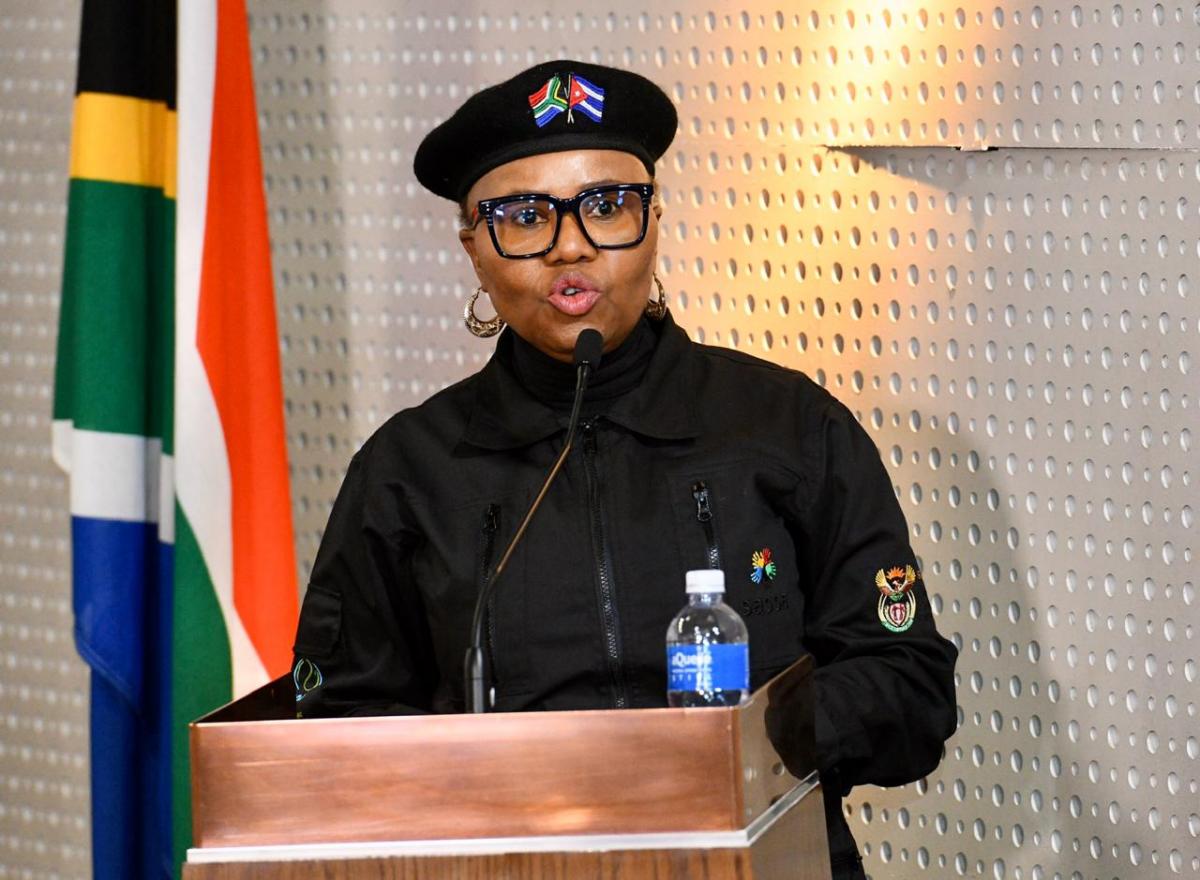
“The Special COVID-19 Social Relief of Distress Grant will be implemented in terms of the existing avenue provided for by the Social Relief of Distress channel, which is administered in accordance with the provisions as set in the Social Assistance Act, 2004. In terms of Regulation 9 (6), social relief may be provided to South African citizens, permanent residents and refugees who have been affected by a disaster.
This framework is currently administered through the South African Social Security Agency (SASSA) – however with limitations,” the Minister explained.
She added that the new grant requires a rather more complex approach, as the beneficiaries are neither on the SASSA database nor other government grant support programmes. It was therefore necessary to introduce new systems and new qualification criteria and to amend some regulations.
“We are still finalising additional access channels, including SMS, self-help desks and further online application processes. We will give information on these soon,” the Minister says.
Volunteers will be trained and equipped to assist people who do not have access to technology. “We have already received commitments from the National Youth Development Agency, National Development Agency and Community Development Workers in some of the provinces to assist,” she added.
Furthermore, the minister says provincial branches of SASSA will further unpack the grant in consultation with provincial structures and civil society organisation. The department will publicise additional details on how the grant will be implemented.
She says notification of the outcome of an application for the Special COVID-19 Social Relief of Distress Grant will be provided in the same manner in which the application was made.
Payments will be deposited into applicants’ bank accounts or made through cash send measures through banks. The benefit/grant will be paid from the date of approval up to the end of October 2020, provided the qualifying criteria listed continues to be met.
“So if applicants apply in June, their payments will be from June and there will be no backpay,” the minister says.
She says it is important for the applicant to note that by virtue of application, all applicants grant consent to SASSA to verify their residency, sources of income and/or social security benefits with government departments and financial institutions. All identity documents and permits will be cross checked against other data sources.
“False applications could give rise to possible prosecution,” she says.
“The system will go live immediately after the regulations are published and we envisage to start making payments by 15 May 2020,” she says.
Minister Zulu says those who have applied during the trial run will be contacted to provide further information.
Qualifying criteria for the special R350 grant
Applicants must:
- be registered on the Home Affairs system,
- be above the age of 18,
- be unemployed,
- not be receiving any income,
- not be receiving any social grant,
- not be receiving any unemployment insurance benefit,
- not qualify to receive unemployment insurance benefits,
- not be receiving a stipend from the National Student Financial Aid Scheme, and
- not resident in a government-funded or subsidised institution.
Applicants will need to provide the following compulsory information for the processing of their applications:
- Identity number/Home Affairs permit,
- Name, initials and surname as captured on the identity document,
- Gender and disability,
- Banking details - bank name and account number,
- Contact details - cellphone number, and
- Proof of residential address.
Applications may be lodged electronically by sending a WhatsApp message to 0600 123 456 and selecting SASSA or emailing SRD@sassa.gov.za.
Let us unite in our fight against Covid-19
Let us unite in our fight against Covid-19 Joy
The entire world is in the unrelenting grip of the coronavirus pandemic, whose spread has been rapid. A vaccine has yet to be found. Across the world, over 3.4 million people are known to be infected and more than 240,000 have died. These are indeed desperate times.
When the national state of disaster was declared six weeks ago, South Africa only had 61 confirmed coronavirus infections. Despite the relatively low number, expert opinion and international experience indicated that infections would rise exponentially. I said that urgent and drastic measures would need to be taken.
Those measures – which included a nation-wide lockdown and the closure of our borders – have proved to be effective in delaying the spread of the disease.
This has been possible because most South Africans have adhered to the lockdown provisions, practising social distancing and wearing face masks. I applaud you for this and for all the other sacrifices you have made.
At this stage in the progress of the pandemic, other countries had far more infections than we do. As of now – which is 46 days since we recorded our 100th coronavirus case – we have 6,783 confirmed cases. Italy, which has a similar size population to ours, had more than 140,000 cases and the United States had around 700,000 confirmed cases at the 46-day mark.
But this does not mean that the danger has passed. We have not nearly reached the peak of infections in South Africa. All the scientific models show that the infection rate will continue to rise at a much faster rate in the next few months.
However, the speed with which the virus spreads and the number of people who are ultimately infected will be determined by what we do now. That is why the easing of the lockdown needs to be gradual and cautious. It is for this reason that many regulations need to remain in place and why it is absolutely essential that people observe them. I know how difficult this is and I understand the concern that many of our compatriots have about how these regulations are interfering and limiting their rights. But all this is necessary. Our overriding objective is the preservation of life.
Social distancing and proper hygiene are still our best and only defences in this struggle. This is what informs the regulations we have put in place for level 4 of our response. Our considerations are based on empirical evidence, scientific and economic data and international best practice.
In the 1995 judgment of the Constitutional Court that outlawed capital punishment, Justice Arthur Chaskalson wrote: “The rights to life and dignity are the most important of all human rights and the source of all other personal rights. By committing ourselves to a society founded on the recognition of human rights we are required to value these two rights above all others.”
The regulations we have put in place are founded on that commitment to life and dignity, and which justify – in these extreme circumstances – temporary restrictions on other rights, like freedom of movement and association.
In doing this, South Africa is not unlike many other countries.
An estimated one-fifth of the world’s population is under quarantine or nationwide lockdown, with this number growing rapidly in response to rising infections. This includes countries with substantially larger populations than ours, like India with its 1.5 billion people.
Dozens of countries have imposed curfews such as the one that is now in place here. Limitations on movement are in place in a number of countries. In the UK and the French capital, Paris, public exercise is limited to certain hours and within a certain distance of one’s home.
Containment and prevention measures similar to ours are in place in a number of countries. For example, alcohol sales during lockdown have been either restricted or banned in a number of territories and by local governments, including parts of Mexico, Hong Kong and Greenland, which last month imposed a ban on alcohol sales during lockdown to limit infection but also ‘to curb violence against women and children.’
There has been much public comment on government’s decision to extend the prohibition on the sale of tobacco products into level 4. A decision like this is bound to be controversial, but it is wrong to suggest that there are Ministers or a President doing and saying whatever they want on this matter.
On 23 April, I announced that cigarette sales would be permitted during level 4. This was based on the view of the National Coronavirus Command Council (NCCC), and which was contained in the draft framework that was published for consulation.
After careful consideration and discussion, the NCCC reconsidered its position on tobacco. As a result, the regulations ratified by Cabinet and announced by Minister Nkosazana Dlamini-Zuma on 29 April extended the prohibition.
This was a collective decision and the public statements by both myself and the Minister were done on behalf of, and mandated by, the collective I lead.
Every regulation we have put in place has been carefully considered. Along the way there has been consultation with medical experts, various constituencies and different industries. We have been guided by international bodies and the experience of other countries.
The reality is that we are sailing in unchartered waters. There is still a great deal about the epidemiology of the virus that is unknown. It is better to err on the side of caution than to pay the devastating price of a lapse in judgment in future.
While there are differing views on some of the decisions we have taken – and in some instances these have polarised opinion – government is making every effort to act in a way that advances the rights to life and dignity of all our people.
Listening to our people and their concerns during this period has been one of the distinguishing features of how we as government have managed this pandemic. We continue to listen to the concerns of our people and are prepared to make adjustments that balance people’s concerns about the challenges they face with the need to save lives.
At this difficult time, our collective energies must be focused on ensuring that health and life is preserved, that the delivery of food, water, health care, social security and social support is not disrupted.
Under these extraordinary circumstances, as government, as individuals and as society we will at times make mistakes. When these occur, we will correct them. But we must carry on, losing neither our nerve nor our resolve.
The situation in which we find ourselves demands courage and patience. It requires goodwill and trust between you, the citizen, and your government, and between each other.
Proudly SA face-masks now online
Proudly SA face-masks now online angenithaProudly SA provides an online portal for local fabric face mask manufacturers to sell to the public.
Proudly South African (Proudly SA) has established an internet portal to help South Africans source locally made fabric face-masks to combat the spread of the coronavirus (COVID19).
The initiative will enable the country’s clothing and textile sector to retain jobs and support the economy, while also ensuring that local clothes manufacturers are able to meet the pressing demand for fabric face-masks. 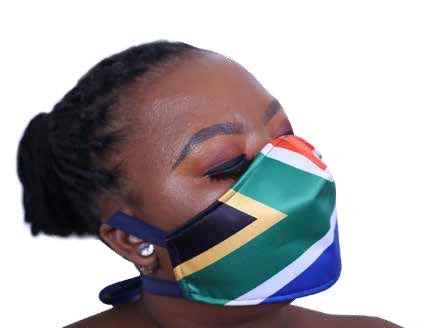
The Proudly SA initiative was inspired by President Cyril Ramaphosa’s announcement that the wearing of cloth face-masks in public is mandatory from 1 May.
“It is imperative that reliable sources of locally made masks are made easily available,” says Proudly SA Chief Executive Officer Eustace Mashimbye.
The concept of the portal was as a result of discussions with the SA Clothing and Textile Workers’ Union; Department of Trade, Industry and Competition (DTIC) and The Manufacturing Circle, around steps to align the clothing and textile manufacturing industry’s initiatives with the needs of the public and businesses.
All companies listed on the site have confirmed with the clothing bargaining council that they are genuine manufacturers that produce locally made fabric masks, support local jobs and operate under conditions that promote worker health and safety.
To help consumers select masks, the portal provides a link to fabric mask guidelines published by the DTIC. The site also links corporate buyers with mask producers and displays the manufacturer’s details, mask images, production capacity per week and unit costs.
“We must support our local businesses, which have the capacity to produce sufficient masks to meet the country’s needs. We call on all corporates and retailers to use the portal to source their masks and to liberate any medical grade stock back to essential services,” says Mashimbye.
Ouma Tema (35), the founder of Plus Fab, says her business was badly affected by COVID-19. She started the business nine years ago and sells her products on various online platforms, such as The Space and Zando. The company employs 16 South Africans.
A member of Proudly SA, Tema grabbed the opportunity to manufacture face-masks for the portal. “We started as soon as we received the opportunity. Our production capacity is 1 200 masks per day, and we have branded and non-branded masks available,” she
says.
For more information, visit www.proudlysa.co.za/covid_19/covid_19.php#.
Manufactures can obtain more information by emailing bongani@proudlysa.co.za.
Relief for spaza shops and general dealers
Relief for spaza shops and general dealers vuyelwanRegistered spaza shops and general dealers that have been affected by the coronavirus (COVID-19) will be assisted with funding from the Department of Small Business Development (DSBD).
Funding of R7 000, per spaza shop or general dealer, will be provided by the DSBD, which has partnered with Nedbank to facilitate the Spaza Shops and General Dealers Support Scheme. The scheme forms part of the Small Enterprise Finance Agency’s Khula Credit Guarantee Scheme.
According to Minister of Small Business Development Khumbudzo Ntshavheni the, department has received 104 applications to date, of which 88 have been approved for funding.
The Minister explained that each spaza shop and general dealer will receive a working capital investment of R3 500. The other R3 500 will be issued in the form of revolving credit, which can be used at pre-selected wholesalers.
“If the spaza shop or general dealer owner chooses to get the full R7 000 as revolving credit, they can do so,” the Minister says.
To apply for support under the scheme, the spaza shop or general dealer must meet the following requirements:
- The owner must be a South African citizen, with a valid South African ID.
- The owner must hold a valid trading permit, even if it is a temporary one.
- A business license is required in the case of a general dealer.
- The trading permit and business licence must be submitted as original documents. Only permits or licenses issued by the municipality are valid.
If a business owner meets the requirements, they can apply by visiting their nearest Nedbank branch or Nedbank desk, which are located inside Boxer stores nationwide.
If a spaza shop or general dealer is not yet registered, qualifying owners must be willing to accept assistance to register with the Companies and Intellectual Property Commission, South African Revenue Service and the Unemployment Insurance Fund. Nedbank will also register owners on the SMMESA database.
In addition, owners must:
- Buy products on the DSBD’s approved goods list, which will change from time to time.
- Open a business banking account.
- Be part of the Small Enterprise Development Agency’s business management support programme, which will assist them with inventory management and stock control, management and annual financial statements.
- Uphold Environmental Health and Food Safety Standards and guidelines from the Department of Health (DOH), including sanitising surfaces and equipment before and after serving a customer; disinfecting service counters; maintaining social distancing between customers and service points; and not selling counterfeit, stale or expired foods.
- Not use their trading spaces as sleeping quarters.
For more information about the scheme and how to apply for assistance, contact 0860 663 7867 or email spazasupport@dsbd.gov.za.
Schools to re-open in phases
Schools to re-open in phases JoySchool personnel are returning to work on set dates during May to prepare for the return of Grade 7 and matric students in June, with subsequent grades being phased in over a period of time.
The Department of Basic Education has revised the school calendar to keep learners and teachers safe as South Africa continues to fight the coronavirus (COVID-19) pandemic. 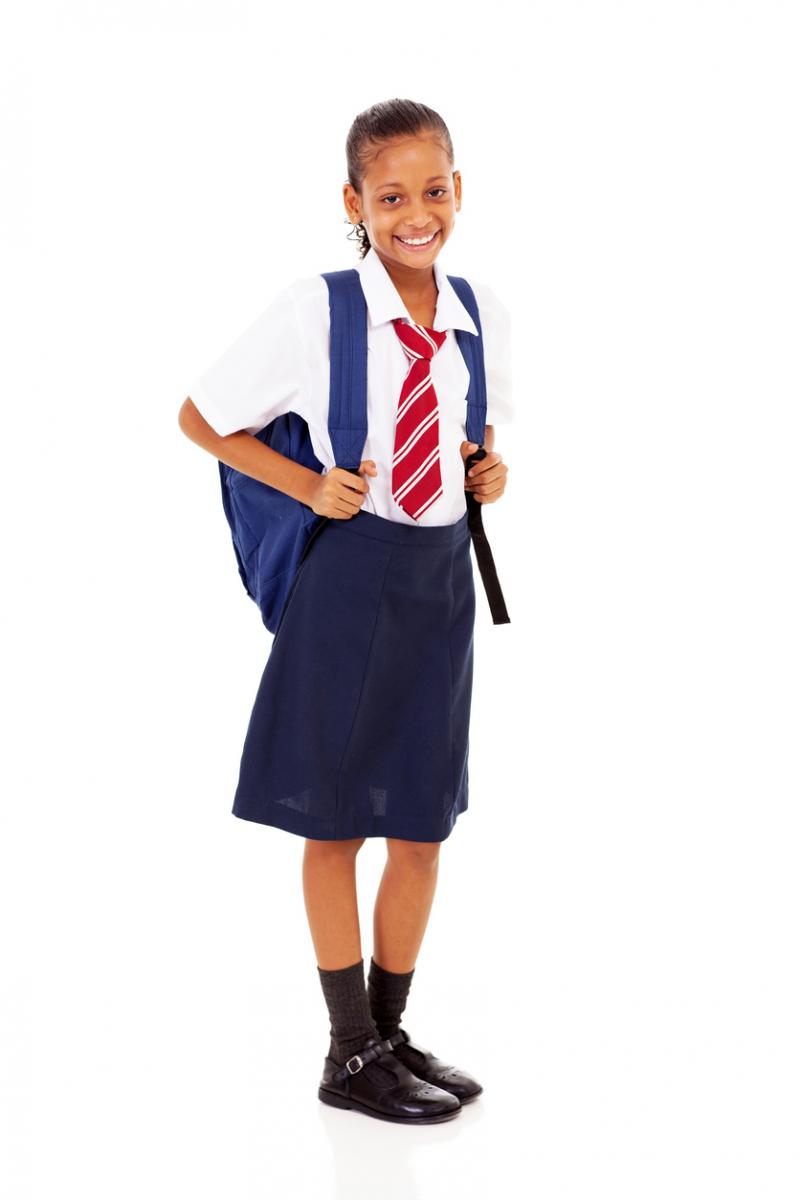
Basic Education Minister Angie Motshekga says the plan is that Grade 12 and 7 learners go back to school on 1 June 2020. Office-based staff returned to work on 4 May, school management teams on 11 May and teachers on 18 May to allow sufficient time for schools to be prepared for the return of the first batch of learners.
The school calendar will be gazetted once the administrative work has been completed.
Furthermore, special arrangements will be made to permit learners and teachers who are currently in other towns or cities, provinces and/or neighbouring countries to return to their schools and places of residence.
A special dispensation will also put in place for learners who experience barriers to learning.
Catch-up programme
Following the announcement of the national lockdown by President Cyril Ramaphosa, the Council of Education Ministers agreed to focus on a catch-up programme for when learners return to school and, in the meantime, to double efforts to promote learning and teaching in homes.
“We are grateful that our partners have made great strides to reach out to as many learners as possible, with the provision of curriculum support during the COVID-19 lockdown,” Minister Motshekga says.
The department has used 123 radio stations and six television channels, with a total reach of over 35 million people, to minimise the impact of the national lockdown on schoolchildren by putting learning support within their reach.
In addition to the 13 radio stations of the SABC, which broadcast in all official languages, 110 community radio stations are also involved in carrying curriculum content on a daily basis.
The radio lessons provide curriculum support lessons to learners in various grades, including early childhood development (ECD). Subjects covered include maths, physical science, English first additional language, life sciences and accounting. A variety of African languages are also covered for ECD learners. Learners are encouraged to check their local listings to find out when the programmes are being broadcast.
“The initiative is part of broader efforts to prevent a total loss of the school year and to combat the spread of the virus,” she explains.
 Online resources have also been made available for learners who have the devices and data to access them. “We appreciate the contribution by our partners for the zero-rated platforms, which carry curriculum content for use in the current situation of the lockdown,” the minister says.
Online resources have also been made available for learners who have the devices and data to access them. “We appreciate the contribution by our partners for the zero-rated platforms, which carry curriculum content for use in the current situation of the lockdown,” the minister says.
“We acknowledge that all these efforts are not perfect; however, we needed to put in place measures to close the vacuum that would have existed as a result of the COVID-19 lockdown,” she adds.
The department has also decided to postpone the May/June Matric rewrite examinations. The exams were due to be written by more than 350 000 mainly part-time candidates, from 4 May to 26 June.
“Due to the lockdown, we have not been able to complete our preparations, which include the printing and distribution of question papers, the appointment of invigilators and markers and the general readiness in marking centres,” Minister Motshekga says.
The examinations will, therefore, be merged with the November examinations. A new timetable for the merged examinations will be communicated urgently, as part of preparing the system for the biggest matric examination ever seen in the country.
“We estimate that 1 100 000 candidates will sit for the end-of-year matric examinations in this merged format, which includes the Amended Senior Certificate and National Senior Certificate,” she says.
On school fees
The department says the school fees of children who attend fee-paying schools must be paid.
“We received reports that in some schools, parents did not pay their fees; this has affected the salaries of school governing body-appointed teachers. It was agreed that provinces would look into the matter, to find an amicable but implementable solution,” she says.
She urged all parents to continue paying school fees.
“If you cannot pay because your circumstances have changed as a result of COVID-19, please approach the school and communicate your challenges with them,” she says.
Social grants topped up during COVID-19
Social grants topped up during COVID-19 vuyelwanGovernment is making good on its promise to cushion the financial impact of the lockdown on the country’s most vulnerable citizens.
Government has temporarily increased social grants for South African Social Security Agency (SASSA) beneficiaries as of May, to alleviate poverty among millions of citizens.
Minister of Social Development Lindiwe Zulu says social grants remain a critical safety net for the poor during the coronavirus (COVID-19) lockdown.
As part of government’s relief measures targeting people who are already receiving social grants, the minister says child support grant beneficiaries received an additional R300 per child for May only. 
However, from June to October this year, the minister says a R500 grant will be paid to caregivers of children who qualify for child support grants and the amount per child will revert to R440 per month from June.
“All existing caregivers will automatically qualify and receive this benefit along with the existing child support grant monthly benefit,” Minister Zulu says.
She says all other existing social grants will be increased by R250 per month from May to October 2020.
“We agree that the children are the most vulnerable, with the lowest grant of all available grants, and this is why we have allocated the bulk of the budget towards households with children. We have allocated R21.8 billion, which is the lion’s share of the total funds allocated by National Treasury, towards households with children who receive the child support grant,” the Minister says.
“We are also in conversation with our Treasury and other parts of government to examine how we can improve the support that we provide for children, including how to address the gap that has been created by the suspension of the feeding programmes we were providing at early child development centres and schools,” she says.
Minister Zulu says R20 billion will be paid during the May payment cycle to 11.3 million recipients, thus benefiting 18.6 million people, including children.
“This includes the increased amounts mentioned above. In many poor households, social grants are the only source of income and these increases will go a long way to ensure that these families do meet their basic livelihood needs,” she says.
From May onwards, the department will ensure that the payment of social grants does not force beneficiaries to gather in large numbers to collect their money. This is in line with the disaster management plan regulations. Payments will continue to be made at South African Post Office premises, retailers, banks and at ATMs.
“We will be requesting the Minister of Transport to consider relaxing transport regulation during the first week of the payment cycle for social grant beneficiaries. We will also request the security cluster to assist with crowd management during the peak payment period,” the minister says.
The Department of Co-operative Governance and Traditional Affairs will be asked to relax regulations regarding the use of community halls for social grant payments
“We have engaged with retailers and the Post Office to assist with ensuring that social distancing and sanitising requirements are implemented at all access points, and all staff dealing with the public have masks and gloves and the necessary personal protective equipment. SASSA is also negotiating with retailers and other stakeholders for assistance with the provision of masks for older persons who will be in queues,” the minister adds.
SASSA also engaged critical stakeholders in the payment industry and civil society to find possible solutions to relieve overcrowding and inconvenience, especially to older persons and persons with disabilities.
Minister Zulu says the payment dates for older persons and persons with disabilities have been separated from other social grant beneficiaries to relieve overcrowding.
“Older persons and persons with disabilities will receive their social grants on the third of every month or the nearest working day after this date when the third falls on a weekend or a public holiday,” she says.
Step by step guide on using a face-mask
Step by step guide on using a face-mask JoyThe National Department of Health recommends that everyone in South Africa should wear a cloth face-mask (also known as a non-medical mask) when in public.
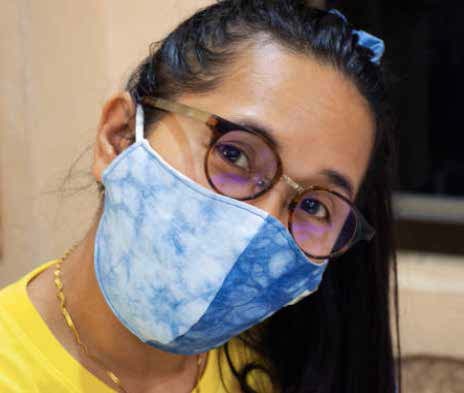 Commuters travelling in taxis and other forms of public transport, as well as people spending time in spaces where physical distancing is difficult to practice, are mustwear cloth face-masks.
Commuters travelling in taxis and other forms of public transport, as well as people spending time in spaces where physical distancing is difficult to practice, are mustwear cloth face-masks.
The main benefit of everyone wearing a face-mask is to reduce the amount of Coronavirus (COVID-19) being coughed up by those with the infection thereby reducing its spread through droplets.
Since some people with the Coronavirus may not have symptoms or may not know they are infected, everyone should wear a facemask.
Cloth face-mask respiratory hygiene
Cloth face-masks are recommended as part of respiratory hygiene or etiquette which also includes coughing and sneezing into a bent elbow or a tissue. The face-mask must cover the nose and mouth completely. Face-masks should not be lowered when speaking, coughing or sneezing.
It is very important that cloth masks are used correctly. Incorrect use might result in users putting themselves at risk of spreading Covid-19.
Even when you are wearing a mask you must still:
- wash your hands
- observe social distancing
- remember to sneeze and cough into your elbow
- avoid touching your eyes, nose or mouth with unclean hands.
The public should not use surgical (medical) or N-95 respirator masks because these are reserved for healthcare workers and other medical first responders.
How to handle your cloth mask
- Only use a mask that has been washed and ironed.
- Wash your hands before putting the mask on.
- Place the mask with the correct side facing your face, and ensure that it covers both your nose and mouth properly.
- Tie the strings behind your head, or if you are using elastic bands, make sure these are tight.
- Make sure it fits well. Move it around to get the best fit. Never touch the cloth part.
- Once you have put on the mask, DO NOT TOUCH YOUR FACE again until you take it off.
- When you take it off, undo the ties, and carefully fold the mask inside out, hold it by the strings/elastic and place the mask in a container reserved for washing the cloth mask.
- Wash your hands thoroughly and dry before doing anything else.
- You must have at least two cloth masks per person so you will be able to wash one and have a clean one ready for use.
- Masks should be washed with soap and hot water, rinsed thoroughly and ironed.
The importance of social distancing
In the battle against the highly infectious COVID-19, social distancing is extremely important to help curb the spread of this disease across the country.
Social distancing is about keeping a safe distance of about 2 metres from others so that you reduce the transmission of Covid-19.
This practice is very important while we are in the midst of the coronavirus epidemic where the virus spreads from person to person via an infected person passing droplets through sneezing, coughing or talking.
The implementation of social distancing and the lockdown in South Africa is essential in flattening the curve, which is indicated by the number of infected people dropping.
Technology brings art to life
Technology brings art to life vuyelwanThe Free State Digital Creative Festival brought poetry and visual and digital arts together in a virtual exhibition.
Artists in the Free State have made the best of enforced social distancing, brought about by the coronavirus (COVID-19), for the Free State Digital Creative Festival.
The aim of the festival is to raise awareness about COVID-19, by fusing the work of artists such as Mpho Thulo, a poet and Luis Kruger, a digital artist.
The poem, written about COVID-19, was transformed into a painting and then brought to life by Kruger, using Augmented Reality (AR) – technology that enables one to watch a video by scanning images. 
“I looked at the havoc that has been caused by the pandemic. The artwork I created looked at how the pandemic is moving us towards a digital space. How it can be a catalyst for the Fourth Industrial Revolution,” says Kruger.
The festival, organised by art promotion company Infini3, enables people to go online to view the exhibition and scan the artwork through the AR app, Artivive. When the painting is scanned, a video recital of the poem comes to life and the painting is converted into a digital artwork that plays as a video.
Kruger says that as people cannot visit art galleries during COVID-19, virtual exhibitions can bridge the gap. “Even beyond the lockdown, people will not be able to visit galleries. When they do, the numbers will not be as high as they were before. So, we must use such exhibitions,” says Kruger.
Owner of Infini3 Roxanne Konco says the festival focuses on how the virus has impacted people’s lives. “Digital exhibitions can help preserve artworks that tell the stories of the past, such as the lives of the baSotho people,” she says.
The festival was funded by the National Arts Council.
To view the exhibition, visit www.artspaces.kunstmatrix.com/en.
UIF saves jobs during COVID-19
UIF saves jobs during COVID-19 UrsulaEmployees of Mighty Comms in Midrand, near Johannesburg, received a portion of their salaries despite the company not being fully operational during the nationwide lockdown.
This is thanks to the Temporary Employer-Employee Relief Scheme (TERS) for COVID-19, offered by the Department of Employment and Labour through the Unemployment Insurance Fund (UIF).
The UIF also gives short-term relief to workers when they become unemployed or are unable to work due to maternity or adoption leave or illness.
Mighty Comms was among the successful businesses that received a TERS payment for its employees.
Mighty Comms Founder and Managing Director Refilwe Marumo says the company, which employs 24 people, was not able to generate income during the lockdown. This posed a threat to the business’s survival and its employees’ job security.
“Our biggest project is the roll-out of fibre to townships. The challenge with COVID-19 is that we have to physically lay fibre and install it in a client’s home, which was impossible during the lockdown because everyone had to stay home except for workers providing essential services. This hampered our installation activities and sales,” she says.
To keep the business afloat, Marumo quickly responded to the TERS call for employers to apply.
“I submitted the first application for UIF TERS on 10 April. It was Good Friday, but I submitted anyway because I did not want my employees going unpaid,” she says.
“I eventually submitted the necessary documents and got a response on 14 April. I had to resubmit because my first submission was incorrect. I later read an article saying the submission method had been changed. I was distraught, but I submitted again on 23 April using the new method and received payment two days later. I was relieved,” she says.
The company’s monthly payroll is generally R230 000. UIF paid R118 000.
Marumo says the fund will assist the company because it is temporary relief for employees, although it is not the whole salary package that they normally get.
“It is better than not getting a salary at all and it will assist them to meet their basic needs. Everyone in the company understands the crisis that the nation and the world is facing. We are grateful that such measures have been put in place to alleviate our stress. This also gives hope to employers and employees as such a time has the potential to negatively impact staff morale. The impact of the pandemic will be felt for months to come, but hopefully we will be able to access the UIF for those months,” she says.
R3.3 billion paid
By the end of April, government had dispersed R3.3 billion in COVID-19 TERS claim benefits, submitted by 1.75 million workers. At the time, UIF had received just over 103 000 applications from employers.
About 10 000 applications could not be processed due to errors. Affected companies have been asked to correct their applications and resubmit.
Some of the errors identified relate to incorrect banking details, making it impossible for payments to be processed.
The UIF call centre, which initially had 75 agents, has increased its capacity to 400 agents. More call centre agents will be added should the need arise.
How to apply for TERS funding
Businesses applying for funding must submit the following documents to the UIF:
- The completed agreement between the UIF, bargaining council and employer.
- A completed prescribed template containing employer information.
- Evidence of the past three months’ employee salaries.
- Confirmation of banking details, in the form of a certified current bank statement.
- A letter of authority on an official company letterhead, granting permission to the individual specified to lodge a claim on behalf of the company
For more information, call 0800 030 007 or visit www.uifecc.labour.gov.za/covid19
UIF saves jobs during COVID-19
UIF saves jobs during COVID-19 vuyelwanGovernment pays out R3.3 billion in COVID-19 UIF TERS claims by the end of April.
Employees of Mighty Comms in Midrand, near Johannesburg, received a portion of their salaries despite the company not being fully operational during the nationwide lockdown.
This is thanks to the Temporary Employer-Employee Relief Scheme (TERS) for COVID-19, offered by the Department of Employment and Labour through the Unemployment Insurance Fund (UIF).
The UIF also gives short-term relief to workers when they become unemployed or are unable to work due to maternity or adoption leave or illness.
Mighty Comms was among the successful businesses that received a TERS payment for its employees.
Mighty Comms Founder and Managing Director Refilwe Marumo says the company, which employs 24 people, was not able to generate income during the lockdown. This posed a threat to the business’s survival and its employees’ job security.
“Our biggest project is the roll-out of fibre to townships. The challenge with COVID-19 is that we have to physically lay fibre and install it in a client’s home, which was impossible during the lockdown because everyone had to stay home except for workers providing essential services. This hampered our installation activities and sales,” she says.
To keep the business afloat, Marumo quickly responded to the TERS call for employers to apply.
“I submitted the first application for UIF TERS on 10 April. It was Good Friday, but I submitted anyway because I did not want my employees going unpaid,” she says.
“I eventually submitted the necessary documents and got a response on 14 April. I had to resubmit because my first submission was incorrect. I later read an article saying the submission method had been changed. I was distraught, but I submitted again on 23 April using the new method and received payment two days later. I was relieved,” she says.
The company’s monthly payroll is generally R230 000. UIF paid R118 000.
Marumo says the fund will assist the company because it is temporary relief for employees, although it is not the whole salary package that they normally get.
“It is better than not getting a salary at all and it will assist them to meet their basic needs. Everyone in the company understands the crisis that the nation and the world is facing. We are grateful that such measures have been put in place to alleviate our stress. This also gives hope to employers and employees as such a time has the potential to negatively impact staff morale. The impact of the pandemic will be felt for months to come, but hopefully we will be able to access the UIF for those months,” she says.
R3.3 billion paid
By the end of April, government had dispersed R3.3 billion in COVID-19 TERS claim benefits, submitted by 1.75 million workers. At the time, UIF had received just over 103 000 applications from employers.
About 10 000 applications could not be processed due to errors. Affected companies have been asked to correct their applications and resubmit.
Some of the errors identified relate to incorrect banking details, making it impossible for payments to be processed.
The UIF call centre, which initially had 75 agents, has increased its capacity to 400 agents. More call centre agents will be added should the need arise.
How to apply for TERS funding
- Businesses applying for funding must submit the following documents to the UIF:
- The completed agreement between the UIF, bargaining council and employer.
- A completed prescribed template containing employer information.
- Evidence of the past three months’ employee salaries.
- Confirmation of banking details, in the form of a certified current bank statement.
- A letter of authority on an official company letterhead, granting permission to the individual specified to lodge a claim on behalf of the company.
For more information, call 0800 030 007 or visit www.uifecc.labour.gov.za/covid19